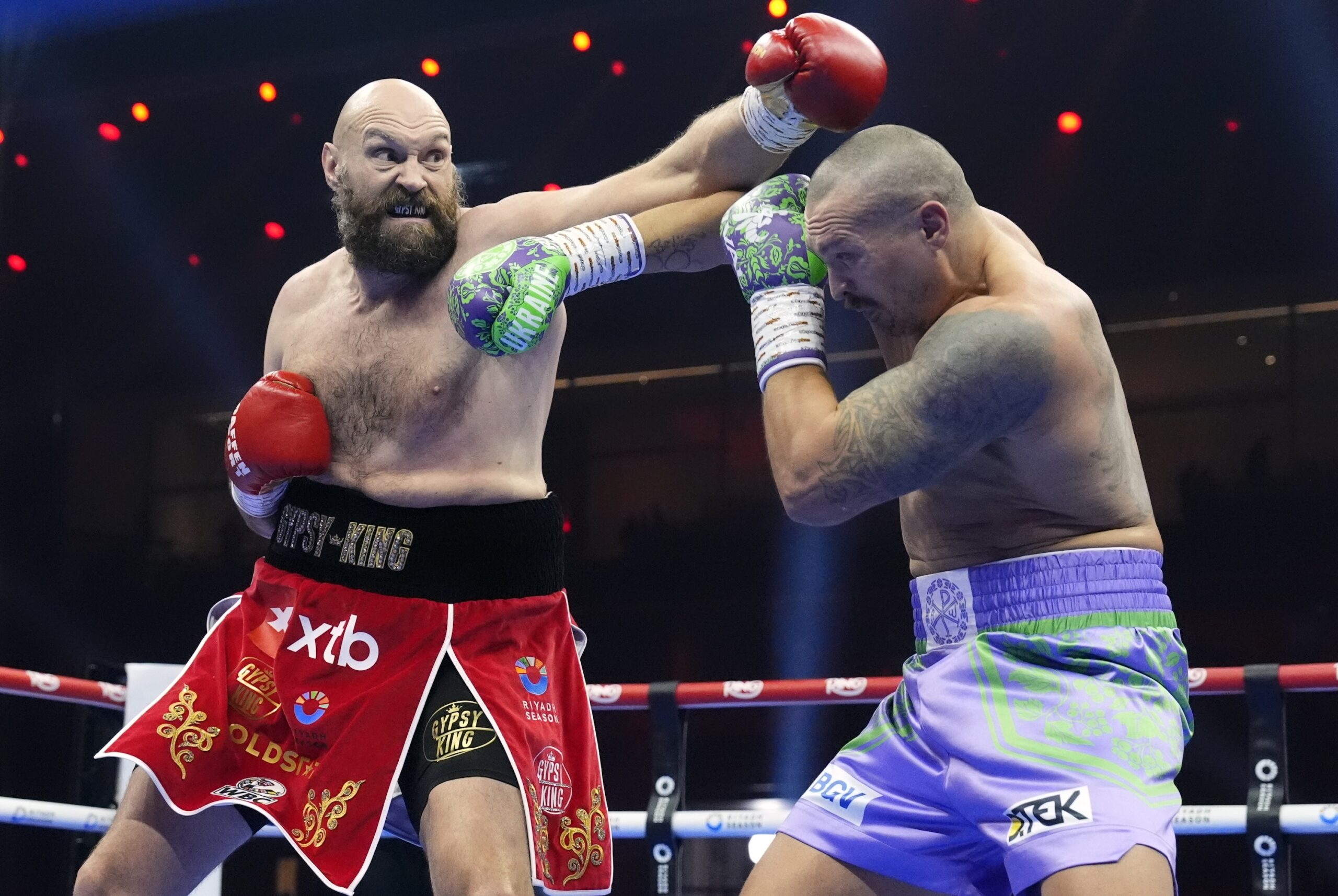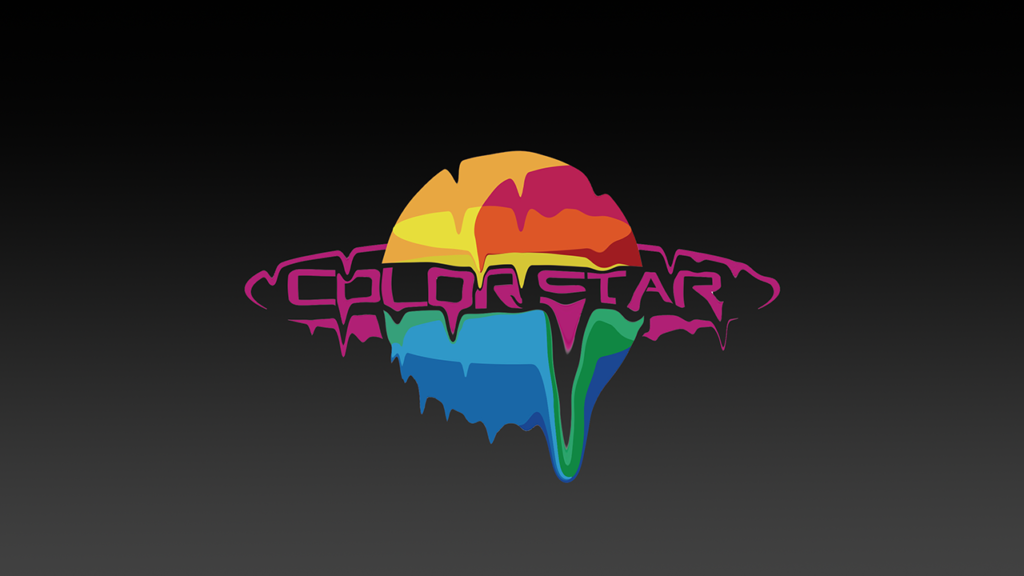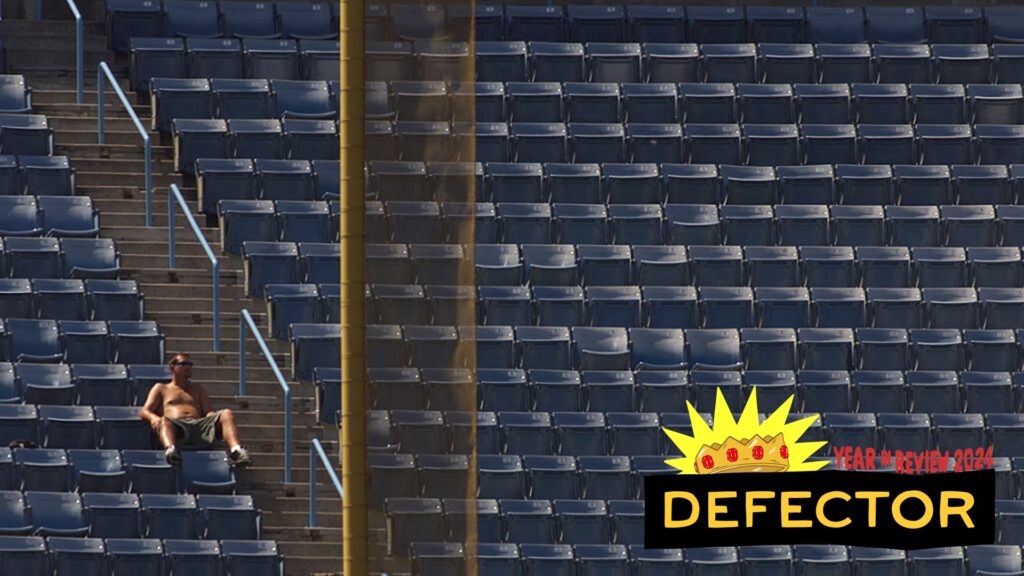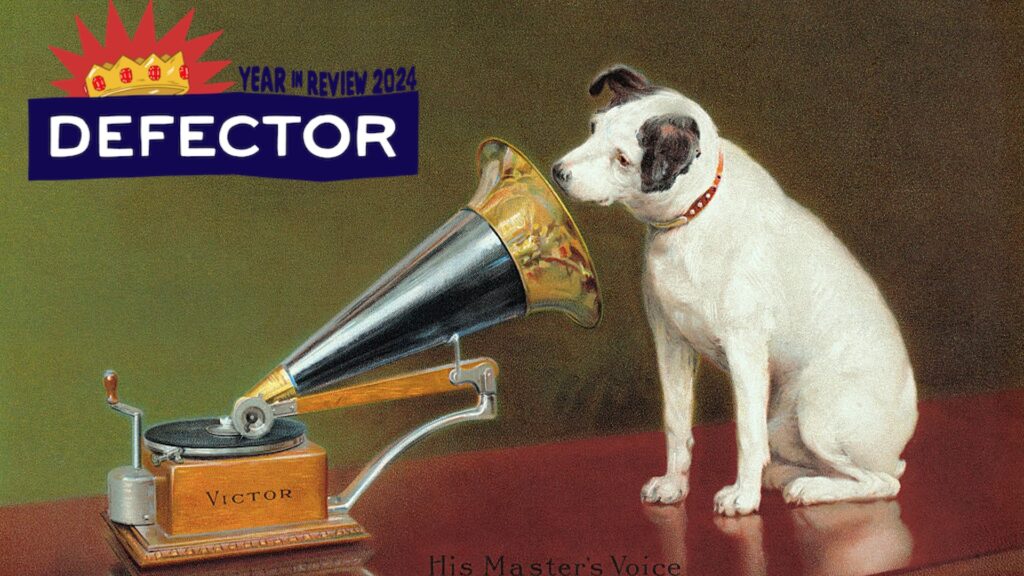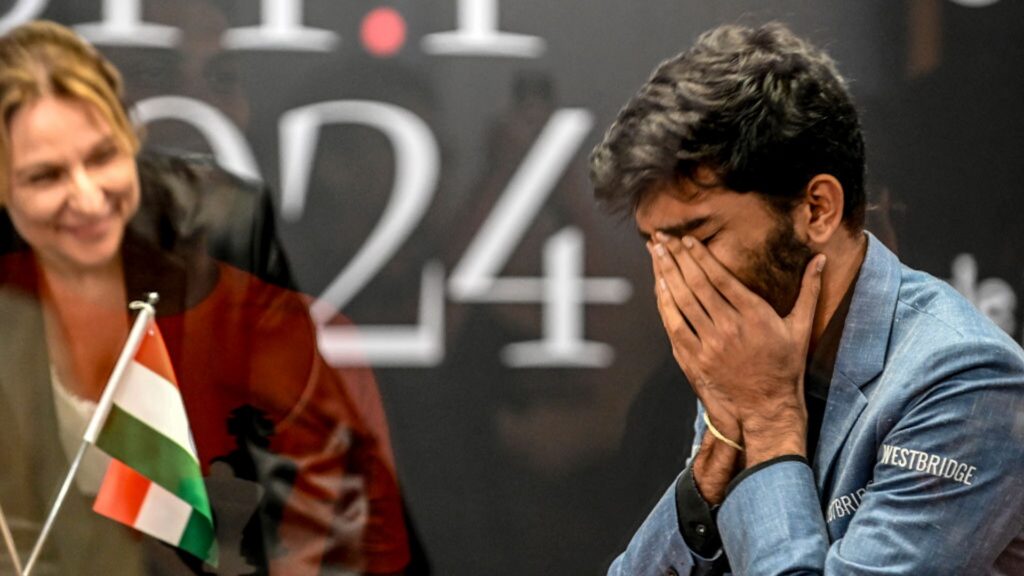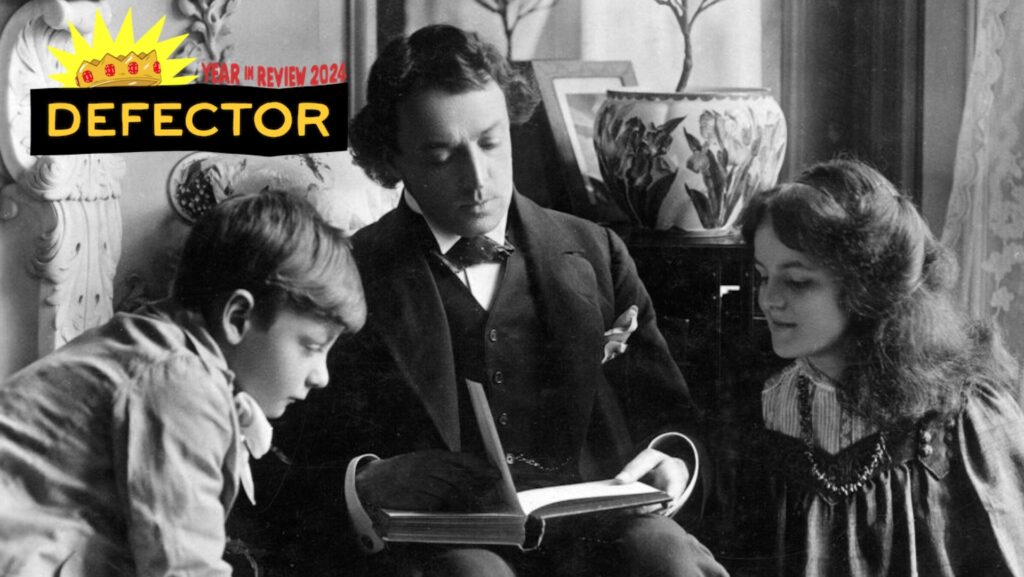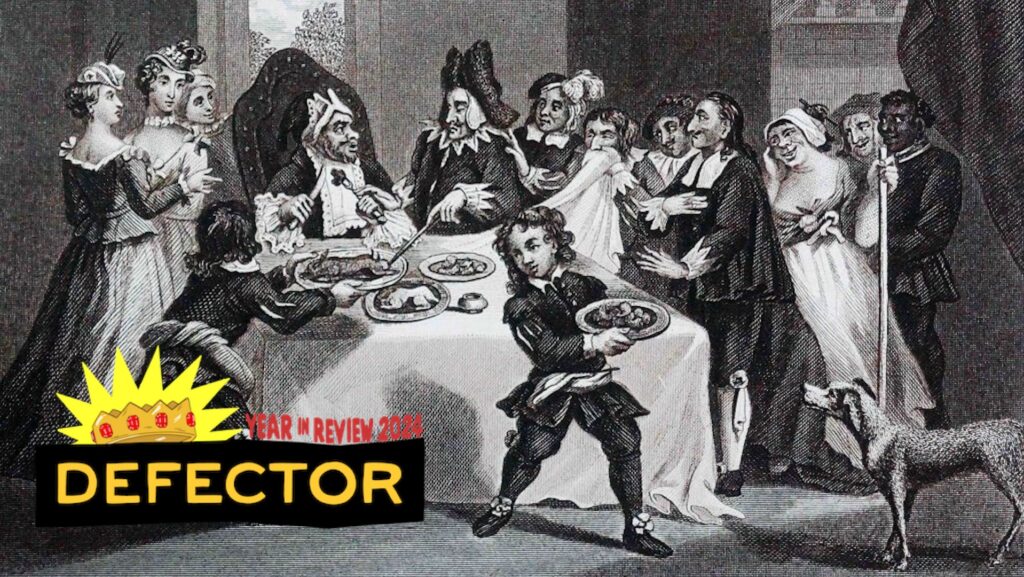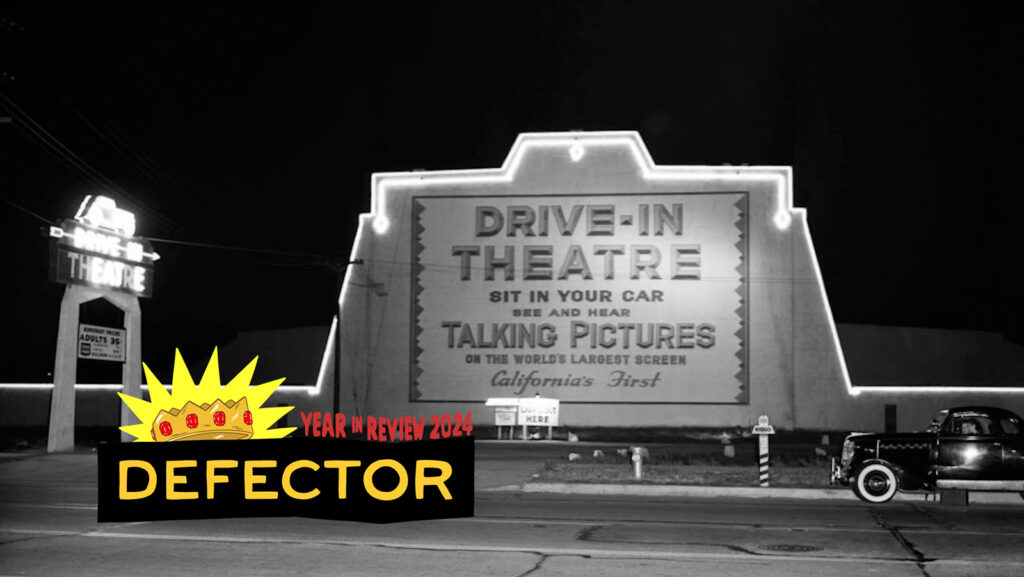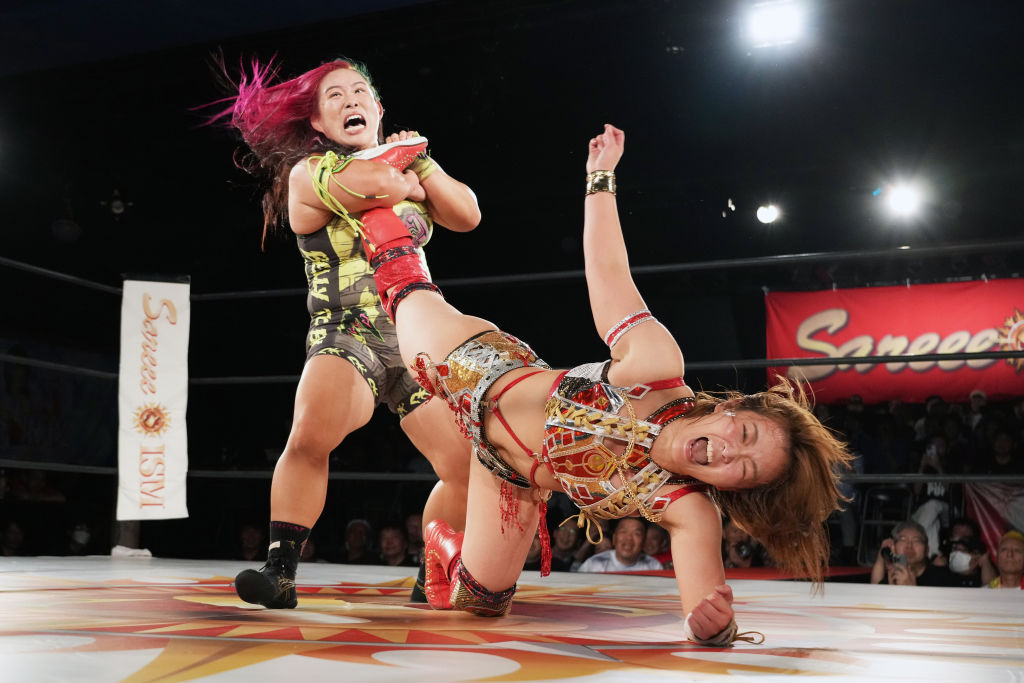Tyson Fury once broke an opponent’s spirit with a story. He was set to fight Wladimir Klitschko, who had been in possession of at least one major heavyweight belt for a full decade, looking nearly invincible throughout his career. Few expected Fury to do much before being knocked out. Then, in a showdown, Fury told the story of a long-ago training camp in which he survived Klitschko in a sauna, which seemed like a battle of wills. Just before Fury revealed that Klitschko came out of the hot box first, Wlad gulped as if someone was pointing a gun at him. Fury was equally effective in the ring, fooling Klitschko so much with feints and jerks that the longtime champion apparently forgot to throw punches. Fury won, then rubbed salt in the wound by serenading his wife with a heartbreaking version of Aerosmith’s “I Don’t Want To Miss a Thing.” Klitschko stood a few feet away, perhaps daydreaming about new careers and better singers.
Fury thought he would never meet an opponent he couldn’t talk better to. He approached daring knockout artist Deontay Wilder with a furious torrent of psychological warfare and then knocked him out twice in his trilogy. He has surely said the word “dosser” more than any other boxer or resident of the Earth. At times he could be nasty, serious, intolerant, kind, or silent, but he inevitably got into his enemies’ heads and destroyed their brains before he even started hitting them.
Then came Oleksandr Usyk.
Usyk wasn’t even on Fury’s radar. He fought at cruiserweight until 2018; once he surpassed the other 200 pounds and moved up to heavyweight, most still thought he would fall before reaching the final boss. Even if he overcame the initial obstacles, Fury had six inches of height, seven inches of reach, and a few dozen pounds on him. But Usyk twice beat Anthony Joshua, whom Fury had his eye on for a long time, and took all three of AJ’s belts. He was ready and willing to take fourth from Fury despite the comical size difference.
Fury started picking on Usyk right away. The first time a fight between Fury and Usyk was mooted, Fury launched into a trademark profane rant in Usyk’s face. But Usyk refused to participate and looked at him with a slight smile on his face. Fury went through his insult agenda and couldn’t get a reaction. It gradually ran out of power, allowing uncertain pauses in its typically incessant flow of bilge. “You’re going to do something!” He shouted fury. “Are you going to do something?”
Usyk did it: by refusing to play Fury’s game. Every time Fury criticized him, Usyk would let Fury talk to himself or respond as if Fury were a hyperactive child (which he kind of is). He even maintained restraint once they fought. When Fury showed off in the first round of their May 19 clash, placing his arms on the ropes and barking at the crowd, Usyk retreated to the center of the ring like a father waiting for his son to burn off a sugar high.
While Fury clowned around, Usyk focused on the fight. Although he lacks knockout power, Usyk consistently forces his opponents to work at a pace just above their comfort threshold, like a treadmill running faster than a runner’s ideal pace. Fury had a lot of success in the first six rounds in which he fought Usyk, but he used up a disproportionately large percentage of his gas tank, leaving him vulnerable late. In the ninth round of that May fight, Usyk found Fury’s chin with his cruelest left hand of the night. He turned off the lights for a split second and Usyk continued, landing a handful of clean shots on a reeling, half-conscious Fury and finally taking him down. Usyk hunting down the injured giant became the decisive moment of the fight, visually and on the scorecards: the extra point he earned with the knockdown made up for his margin of victory on the tiebreaker scorecard.
With Fury’s undefeated record gone after 36 fights and 36 years, he sought to reinvent himself and the narrative. He entered a basic training camp in Malta, unilaterally isolating himself from any contact with his family. He scaled back his aimless rants and tried to rationalize his loss, emphasizing his early success and turning Usyk’s ninth-round near knockout into an argument that Usyk had a golden opportunity to stop him and couldn’t. His team explained that they had not been able to train before the first fight for fear of reopening a cut.
On Saturday in Riyadh, Fury effectively improved his performance from the first fight. He kept his right hand planted on his cheek to block Usyk’s stinging left hand. He avoided trading with Usyk at mid-range, either operating behind his long jab or putting pressure on Usyk, landing a quick punch before leaning all 280 pounds of his mass on Usyk to tire him out and stifle the counterattack. Fury completely eliminated the show-off and, more importantly, dodged the demonic blows that disturbed his senses in the first fight. He even banished his father from his corner, after the famous Big John sowed discord in the first fight by talking about Fury’s trainers. Fury has endured a tumultuous career, overcoming long struggles with depression and drugs to return to the ring. This was probably his most disciplined performance yet.
And all in vain on the scorecards. Usyk won again, this time by a unanimous score of 116-112, and still found a way to wear Fury down despite his new approach. This time, Usyk accelerated after the fifth round, in which Fury landed strong uppercuts and looked as imposing as the Death Star lumbering toward Alderaan. Seemingly in trouble, Usyk managed to ensure that Fury would never be in control again. His punches had a ferocious snap. He attacked Fury’s body, then directed his attacks at Fury’s bearded dome when he had softened the midsection. Usyk set his pace subtly, constantly repositioning his feet to put pressure on the big man rather than through a high volume of punches. Although Fury remained competitive, Usyk had the advantage during the second half of the fight. Fury expended the remains of his energy in the final round, charging forward more recklessly and swinging out of his shoes. Usyk refused to give in, although in retrospect he could have: his advantage on the scorecards was enough to have taken him down and it would not have influenced the final result.

Usyk’s opponents can probably find solace in the fact that he will be remembered as one of the greatest fighters to ever do it. He is now 23-0 and his record is littered with wins against the best cruiserweights and heavyweights available. He’s enjoyed multiple stints at number one in the pound-for-pound rankings, is the best cruiserweight of all time or second only to Evander Holyfield, and has ranked somewhere on the list of legendary heavyweights after only seven fights. God knows what his ceiling is, as he has dutifully produced an extra team every time an opponent forced him to do so. It’s a shame Usyk isn’t a household name – he complements his skills with a strange, wholesome personality that’s decidedly less toxic than Fury’s. The baddest man on the planet beats up guys who are 50 pounds heavier than him and then cries next to his daughter’s stuffed animal that he brought to press conferences. It’s very good.
I suspect Fury will struggle to deal with the humiliation of two consecutive losses, even at the hands of such a quality opponent. When Fury reigned at his peak, many people argued that his peculiar combination of size and skills could have taken down any heavyweight in history: Frazier, Foreman, Ali, any. Now Usyk has twice established that Fury isn’t even the best heavyweight of his own generation. The average down-to-earth human being can process failure after trying their best and not feel ashamed of losing to the best. But Fury’s very identity is tied to supremacy. Although he has a history of undertraining for fights against lesser opponents, he still won those fights. Failing this time despite training to the max should challenge your deepest certainties. If I’m not the best, what am I?
Instead of going into a public existential crisis immediately after the fight, Fury left the ring while Usyk answered questions. He didn’t stay silent for long, insisting, as he walked back to his locker room, that he deserved the decision. But the image of him leaving the ring seemed more telling. The great talker finally had nothing more to say.

 Workout
Workout
 Meditation
Meditation




 Contact Us
Contact Us
